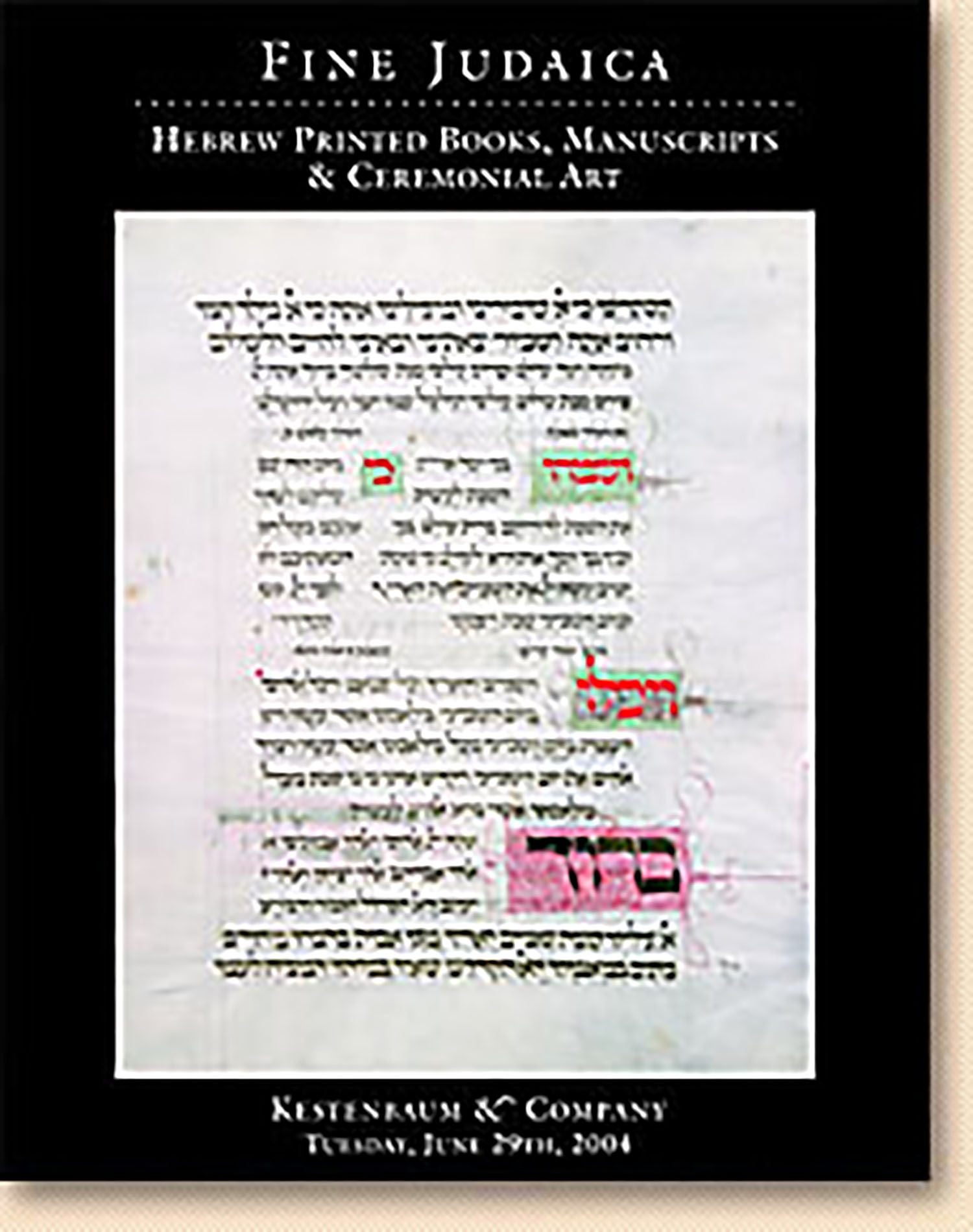(RaDaK). Commentary on Psalms (Text of Psalms with commentary by Rabbi David Kimchi

AUCTION 24 |
Tuesday, June 29th,
2004 at 1:00
Fine Judaica: Printed Books, Manuscripts, Ceremonial Art and Holy Land Maps Including Ceremonial Art from the Collection of Daniel M. Friedenberg
Lot 148
KIMCHI, DAVID.
(RaDaK). Commentary on Psalms (Text of Psalms with commentary by Rabbi David Kimchi
Isny: Paulus Fagius 1542
Est: $3,000 - $4,000
The grammarian and biblical exegete R. David Kimchi (1160?-1235?), known in Hebrew by the initials RaDaK, and in Latin as Maistre Petit, was a native of Narbonne. As a result of the Almohad persecutions in Spain, his father Joseph Kimchi crossed over the Pyrenee mountains, permanently settling in more amicable Provence. During the Maimonidean controversy of 1232, RaDaK took to Maimonides’ defense. Though a rationalist, Kimchi did not hesitate to incorporate in his commentary rabbinic interpretations from the Talmud and Midrash. (EJ, Vol. X, cols. 1001-1004). One of the areas in which R. David Kimhi, as his father Joseph before him, excelled, was as a polemicist. Specifically, his commentary to Psalms devotes several passages to Christian-Jewish polemics. The so-called Teshuvoth ha-RaDaK la-Nozrim (Responses of RaDaK to the Christians), published as an addendum in some copies, is in reality but an extract of these passages in the commentary to Psalms. See Frank Talmage, Apples of Gold in Settings of Silver (Toronto, 1999), p. 213.
In our edition most of the passages that would offend the sensibilities of the Church have been omitted. The one exception would seem to be Psalm 19 (15a) where RaDaK speaks of commandments that the gentiles claim are allegories. Regarding the importance of this particular passage in RaDaK's commentary, see Frank Talmage, HUCA 38:219, and David Berger, The Jewish-Christian Debate in the High Middle Ages (Philadelphia, 1979), p. 359, n. 23.
This is one of 18 books to be produced at the short-lived Hebrew press at Isny (department of Wurtemburg, Germany) during the years 1541-1542. The press was the brainchild of the Christian Hebraist Paulus Bagius (Fagius), a Protestant minister. Proofreader of the press was the incomparable grammarian Elijah Bahur (Elijah Levita). Bahur had acquired a considerable reputation in Christian circles, having been the teacher of such famous men as Egidius da Viterbo, Sebastian Münster, and others. Bahur worked for Daniel Bomberg in Venice, but his relations with Bomberg’s successor Cornelius Adelkind soon soured. It was at this point that the invitation arrived from Bagius. Elijhah Bahur arrived in Isny with his two grandsons Joseph and Elijah, who worked as typesetters. We are told that Bahur found life in Germany dreary after having tasted of the more colorful Italian lifestyle. See Haberman, Perakim be-Toldoth ha-Madpisim ha-Ivrim (Jerusalem, 1978), pp. 149-166
